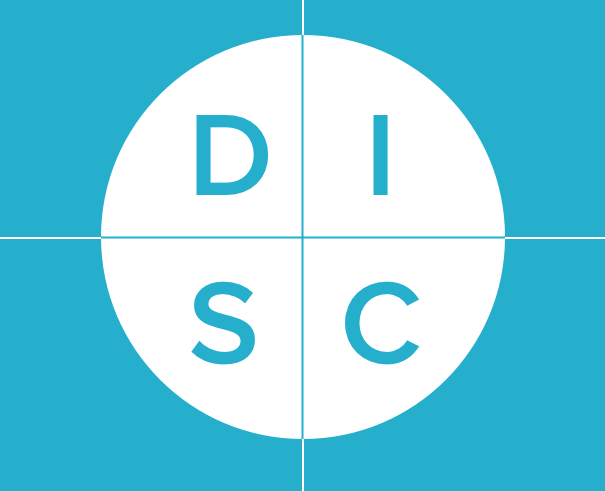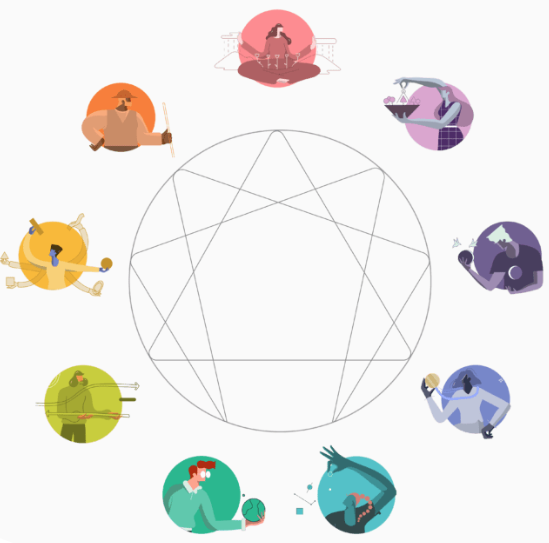INFJ or ENTP? Enneagram 4 or 7? DiSC “D” or “S”?
Odds are, you’ve probably heard at least some of the above terms in the last few years. Personality assessments seem to be on the rise–for personal use and for hiring purposes. So what are they exactly and how can we use them in recruiting?
What are they?
Personality assessments are designed to measure an individual’s characteristics and preferences. They look at things like levels of extroversion, conscientiousness, or emotional stability. These traits can be useful in determining how well an individual might fit into a particular job role or an organization’s culture.
There are a number of personality assessments out there to choose from. We will focus on three popular assessment tools: Myers-Briggs, Enneagram, and DiSC.
This places people into one of four main groups: extraversion (E) vs. introversion (I), judging (J) vs. perceiving (P), intuition (I) vs. sensing (S) and thinking (T) vs. feeling (F). The combination of these leads test takers to fall into one of sixteen personality types (like INTJ or ENTP, for example). Within each personality type, test takers can identify their strengths and weaknesses.
For example, I am an INFJ, which identifies me as creative and sensitive, and someone who is good at practicing empathy and having strong follow through. From there, I can identify how my strengths and weaknesses impact my leadership, work, and connection with my organization. This can help me identify how I work best, who I work best with, and my teammates can better know what makes me “tick.”
DiSC stands for four main personality profiles: Dominance, Influence, Steadiness and Conscientiousness. It helps test takers see which of these four is their dominant trait. Once test takers know their dominant trait, they can learn the best ways for them to respond to conflict, resolve problems, and improve habits and working styles.
The Enneagram Test identifies test takers as one of nine different personality types. When you learn your number, you can learn your strengths and weaknesses both personally and professionally.
For example, Enneagram 1 is The Reformer. They are idealists, principled, self-convinced and justice-oriented. Enneagram 9 is The Peacemaker who reassures and focuses on peace of mind and serenity above all things. Having a balance of a variety of these numbers on your team can make for a well-rounded culture that thrives together.
Why use them?
These assessments are great for anyone to use in order to learn more about their work style, ambitions, and strengths & weaknesses. I would recommend taking all of these assessments yourself to get a good idea of what each entails. You will then get a better idea of how each assessment could help identify ideal members of your team.
Of course, personality assessments shouldn’t be the only determining factor in identifying the ideal recruit. But it can be a very helpful tool to add to your process. It can not only help you find a good candidate, but it can also help you narrow down the type of person you are looking for. (This can work well alongside determining your Avatar. We have a lesson in 4CU on this if you’d like to check it out!)
A couple things to keep in mind…
- Personality assessments are designed to identify key traits that are important for success in a particular role or organization. So before using an assessment, you need to know what traits you are looking for in a candidate – and how the assessment will help you identify those traits.
- Use the assessment as part of a holistic evaluation process. Personality assessments should not be the only factor in the recruiting process. They should be used alongside other evaluation methods. This will provide a more comprehensive understanding of the candidate’s skills, experience, and personality.
How to use them?
Provide Feedback
All candidates who undergo personality assessments should be given feedback on their results. And they should know that there is no “right” or “wrong” way to answer the assessment. As long as candidates answer each question honestly, you can provide feedback that will help candidates better understand their strengths and weaknesses and identify areas for improvement.
Start a Conversation
It is also a good practice to use assessments as a starting point for discussions with candidates during the recruiting process. This can help candidates understand how their personality traits align with your organizational culture, and it also gives you a chance to evaluate how well the candidate is likely to perform in the role. But remember that this is just a starting point for a conversation regarding their values, strengths and weaknesses. No test is as good as a direct conversation–but it can certainly help keep the conversation focused and on track.
Some questions to ask yourself before using personality assessments for recruiting:
- What personality assessment types do I think will be the best fit for my team?
- What assessment types will feel fulfilled by the culture, values, and mission of my organization?
- What questions can I ask recruits who don’t fall into the “ideal” assessment types to make sure that they are still a great fit for us?
No single test can predict how well someone will perform on your team. But using these tests to help you narrow down the type of candidates you are looking for–and who will best thrive on your team–will help you narrow down the search and find the best fit for everyone.



